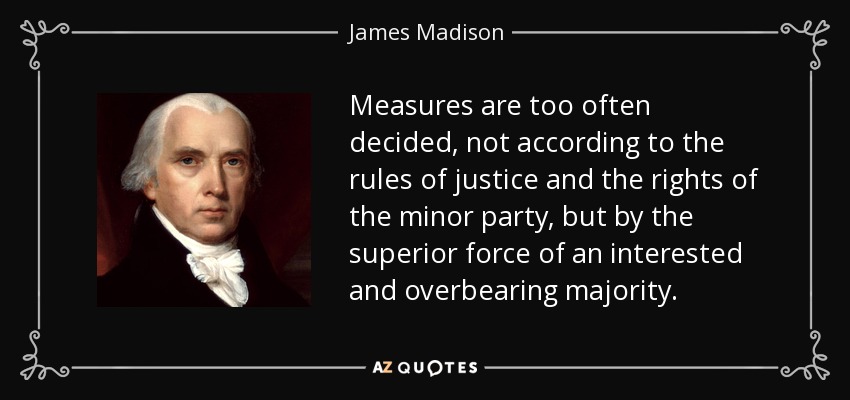
Indeed, Tocqueville described a new type of tyranny, the tyranny of the majority, which overpowers the will of minorities and individuals and was, in his view, unleashed by democracy in the United States. A great deal of the social revolution of democracy, however, carried negative consequences. In analyzing the democratic revolution in the United States, he wrote that the major benefit of democracy came in the form of equality before the law. He wrote and published his findings in 18 in a two-part work entitled Democracy in America. Tocqueville’s experience led him to believe that democracy was an unstoppable force that would one day overthrow monarchy around the world. Théodore Chassériau painted this portrait of Alexis de Tocqueville in 1850 (b). The first English translation, by Henry Reeve and titled Democracy in America (a), was published in New York in 1838. The first volume of Tocqueville’s two-volume work was immediately popular throughout Europe. He understood that the newest incarnation of despotism was likely to be ushered in by the "avowed lover of liberty" who is a "hidden servant of tyranny.Alexis de Tocqueville is best known for his insightful commentary on American democracy found in De la démocratie en Amérique. Tocqueville would not have been distracted by all the talk that warrantless wiretaps, indefinite detainment of enemy combatants and other civil liberties incursions are serving the cause of freedom.

Tocqueville would not be surprised that the Supreme Court has limited the Bush administration's excesses in the war on terror - or that the administration has been eager to nominate justices with an expansive view of presidential power. And he had great hopes for the judiciary. He was a firm supporter of checks and balances. Tocqueville pointed to some bulwarks against tyranny. And he was concerned about tyranny of opinion, saying he knew of no country with "less independence of mind and true freedom of discussion" than America. He worried that the state's power would end up concentrated in a single authority, until its citizens were "reduced to nothing better than a flock of timid and industrious animals, of which the government is the shepherd." He feared the majority would trample on minorities, like the mob that attacked the Baltimore editors.

The Jacksonian Age that Tocqueville was writing about was a very different America, but the concerns Tocqueville raised still resonate. Tocqueville brought to his study of American democracy - which he was transmitting back to Europe, where democracy was on the march - the fear that democracy combined with a strong central power could lead to tyranny.
Tyranny of the majority full#
The book Tocqueville produced - a first volume published in 1835, and a more somber one five years later - is full of keen observations about America. At other times, it just leads to odd advice.

His outsider's perspective sometimes lends insight. It is an entertaining trip, as much in the tradition of Jack Kerouac as Tocqueville. His account of his travels through America in the 1830s is both an appreciation of American democracy, and a cautionary tale about its fragility.īernard-Henri Lévy, the French intellectual, has just written "American Vertigo," about his own travels along Tocqueville's route. When the mob leaders were brought before a jury, they were acquitted.Īlexis de Tocqueville tells this chilling story in "Democracy in America," and warns that the greatest threat the United States faces is the tyranny of the majority. That night, the mob broke into the prison, killed one journalist and left the others for dead. When the mob surrounded the paper's editors, and the state militia refused to protect them, the journalists were taken to prison for their own protection. NEW YORK - During the War of 1812, an angry mob smashed the printing presses of a Baltimore newspaper that dared to come out against the war.


 0 kommentar(er)
0 kommentar(er)
